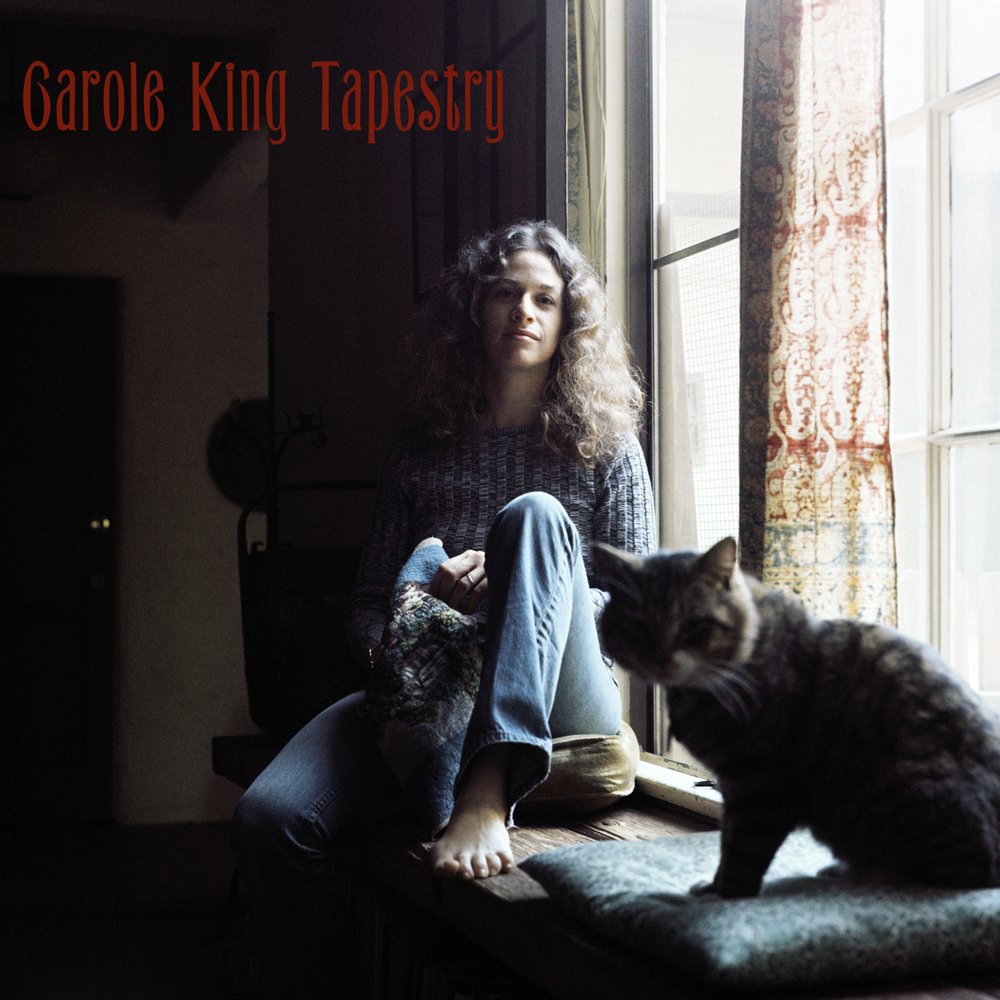Now Playing
Current DJ: Eddie
Staring Problem Fortitude from Equinox (Modern Tapes) Add to Collection
Requests? 773-DJ-SONGS or .(JavaScript must be enabled to view this email address)
 I’ve pretty much always loved Carole King’s 1971 blockbuster album Tapestry, but I’ve sometimes been conflicted about embracing its flaws. Yes, this is one of the most beautiful pieces of pop song craft ever made—it’s a different kind of candidate for “greatest pop album ever” than a dance album like Michael Jackson’s Thriller—but I would be dishonest if I acted like I think every single song is an absolute masterpiece. In fact, 1971 was so good a year for classic albums that Tapestry was probably not even one of the very best albums of the year, though it won Album of the Year at the Grammys. But today I do enjoy every single song on the album, while acknowledging that some are better than others.
I’ve pretty much always loved Carole King’s 1971 blockbuster album Tapestry, but I’ve sometimes been conflicted about embracing its flaws. Yes, this is one of the most beautiful pieces of pop song craft ever made—it’s a different kind of candidate for “greatest pop album ever” than a dance album like Michael Jackson’s Thriller—but I would be dishonest if I acted like I think every single song is an absolute masterpiece. In fact, 1971 was so good a year for classic albums that Tapestry was probably not even one of the very best albums of the year, though it won Album of the Year at the Grammys. But today I do enjoy every single song on the album, while acknowledging that some are better than others.
One sleeper track, “Way Over Yonder,” has played a very special role in my life. I sang it at my college graduation ceremony and at a Take Back the Night march against sexual violence, dedicating it to a number of friends. But still, “Way Over Yonder” is by no means one of the album’s several all-time classics: “I Feel the Earth Move,” “So Far Away,” “It’s Too Late,” “You’ve Got a Friend,” and others far outdistance it in quality. But this song has woven itself into the story of my life in a way that different songs on the album did for millions of listeners in the ‘70s.
This summer I wrote a personal essay about what this album means to me, and suffice it to say that it has been present at a number of important points in my life. I’ve listened to it many times in the last year, as I also wrote a separate paper involving it and Joni Mitchell’s Blue for their imagery of the road. That paper involved me looking more closely at songs like “Where You Lead,” by many accounts a lesser track on the album, which gave me a greater appreciation for the album as a whole, with a few songs that I’d never appreciated as much before then.
I’m guessing that part of the magic of Tapestry for many listeners in its time was its new take on familiar King hits for other artists, including “(You Make Me Feel Like) A Natural Woman” and “Will You Love Me Tomorrow.” King had spent the ‘60s writing hit songs, collaborating with her then-husband, Gerry Goffin, and her album also included a recent hit for another artist, James Taylor, that she records here in a far superior version. This song, “You’ve Got a Friend,” has been called King’s best-known song in the 21st century, and she recently sang it at the Democratic National Convention. I always found this version more emotionally moving than Taylor’s, and I don’t know if it’s the gravity of the strong piano chords, the strings in the middle, or what, but it still means a lot to me. As a kid, I listened to this song for comfort when I didn’t have friends, and though much about my life has changed, this song is still a source of stability in times of turmoil.
Another track that has always stood out to me is her version of “Will You Love Me Tomorrow,” made a hit by the Shirelles in the early ‘60s. There’s a real warmth to this recording that speaks to what the album’s producer Lou Adler has said: he called Tapestry a very naked sounding album, saying that he wanted to make it sound like she was playing in a living room just for you. This song sounds spare and spacious, with unobtrusive percussion and backing vocals from Taylor and Joni Mitchell. I get chills when I hear them sing the title line at different times.
The most out-of-place track lyrically (and perhaps musically) is “Smackwater Jack” a quite happy-sounding song about a serial killer getting caught and hanged. I remember reading an online review calling this song “inappropriately chipper,” but it is a solid song, enhanced (or something) by the cheery backing vocals.
One quality of the album that shows up across many songs is that of longing and desire, whether it’s sexual desire or a longing for home, stability, or inner peace. It most obviously shows up on the ache of “So Far Away” and “Home Again,” which both reference the road and longing for home. ‘70s singer-songwriters like King weren’t always big on overtly political sentiments, and some have said that the movement was a retreat from the overtly political culture of the ‘60s, but as the saying goes, the personal is political, and King’s album became a symbol of feminine strength for millions of young women, as historian Judy Kutulas has written.
Overall, this is quite a strong album, one of my all-time favorites, and I have learned to genuinely appreciate every song.
Next entry: @CHIRPRadio (Week of September 19)
Previous entry: @CHIRPRadio (Week of September 12)